Where do I tell?
Certification and awards
Certification has helped you to improve your management. Now use it for marketing.
Companies get certified or apply for awards partly to gain a marketing advantage, in the expectation that being certified lifts them above some of their competitors. Despite this, they report that customer awareness is low.
How you use certification and award logos is key. It’s your role to know how and where to display them, and more importantly what they mean and why you gained them.
Gaining awards gives customers an independent guarantee of your credentials. It helps with quality assurance and credibility. Now you have the independent recognition of your sustainability performance, you should explain what you do with confidence.
VisitEngland awards
VisitEngland encourages those schemes which support, assess and market businesses to a high sustainability standard.
For business hotels, certification is now often a requirement to tender.
In the corporate travel market, certification is essential in demonstrating compliance with buyer requirements, as both buyers and suppliers will find it less time consuming.
Increasingly, Requests for Proposals (RfP) ask for evidence of independent third-party certification, as well as asking specific questions on environmental and social performance.
Do you communicate your sustainability logos, and more importantly communicate with pride what you did to achieve them?
Where you might communicate your sustainability credentials
Here are some places where customers would expect you to communicate your sustainability credentials:
- In your tendering process;
- In the reception/entrance;
- In your bedroom pack (if accommodation);
- On your website;
- On promotional leaflets and printed literature;
- In your public relations work;
- In adverts.
Certification helps sell
All our hotels are certified to reassure blue chip buyers."
Photo by: VisitBritain/Ben Selway
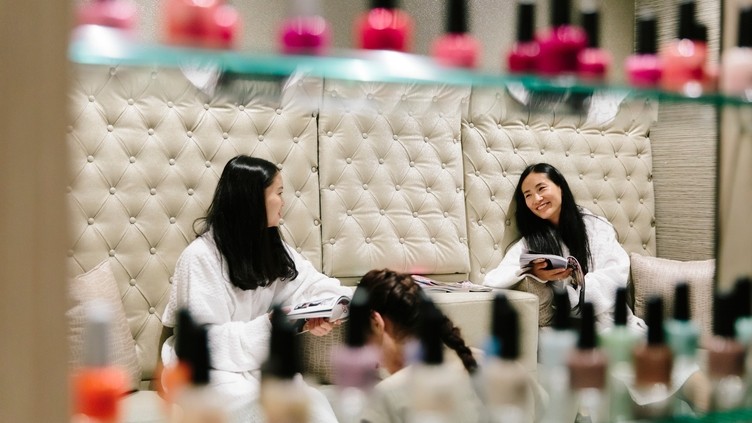
What we do
Much of our business comes from companies that require evidence of sustainability certification and individual practices such as our carbon emissions and fair-trade purchasing, as part of their RfP. So, we have integrated our environmental management system with the requirements from our marketing department to respond to these.
How we tell
Over the years we have developed a set of answers to the typical RfP questions that need to be answered every year, for every company. So, these are now integrated into our own management systems. All our 25 hotels in England are Green Tourism Business Scheme certified, and this gives the base to be able to gather the data that these blue-chip companies demand. Certification helps us focus on the management of our data, to gather information systematically, but also in our communications to potential clients.
Certification helps because many of the RfP questions focus on our monitoring, transparency and reporting. We believe that certification gives us an edge on these RfP, although we don’t get to find out the relative importance it has to the final purchasing decision.
Our top tip
Use certification to reassure your business market buyers that the data you provide in RfP is audited, and to systematically gather internal data.
Online and offline press
You need to do something quirky and unusual to get in the press
The travel sections of newspapers and travel bloggers need fresh, quirky stories to inspire their readers. Newspapers will cover a broader range of issues, while bloggers tend to specialise in specific types of holidays, particularly certain destinations or lifestyle interests for a certain type of customer. They rely both on the credibility of their content–readers don’t like to feel that they are being fed an advertorial. Blogging has a more personal voice than print journalism. Blog followers need to relate to the author’s experiences and trust their judgement.
Travel editors and bloggers get bombarded with very similar mailings from companies claiming to be sustainable. Their question to you will be: ‘What makes you different, in a way that my customers will want to read about you?’
Press coverage you’ve achieved should not be lost. Make links to it from your website, say in your mailings that you have been highlighted, use quotes from the write up to show your positive side. Even if it is old, there’s a value to it.
Add a tab to your website called “our recognition” where you gather certifications, awards and press coverage - put the new one on top, and keep all the previous coverage lower down. All of it reinforces the fact that you are a company that can be trusted.
New, quirky, inspiring
I write human stories my followers can relate to."
Photo by: VisitBritain/Jon Attenborough
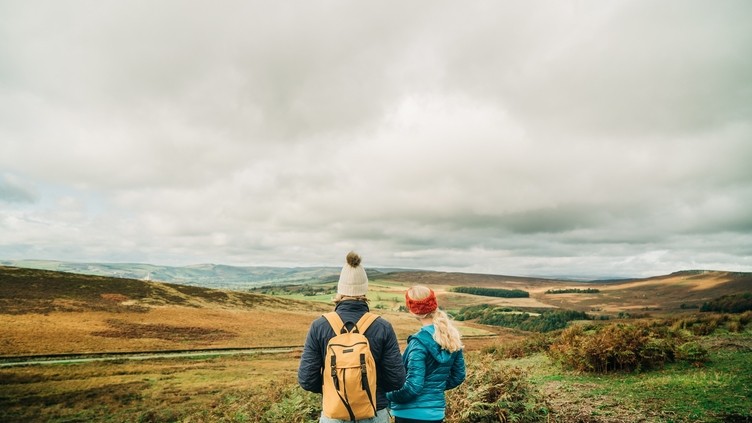
What I do
I write for the 40+ year-old affluent market. I respond positively to offers to blog about locations and businesses that have an edge. It is difficult to explain what this is, as it varies from place to place.
How I tell
I write stories that are new: I was one of the first bloggers to write about privately-run food tours in the East End, where you learn about the culture and history as well as tasting some fabulous food. But, if a lot of other bloggers had already written about it, I would not have been so keen to cover it.
Food stories about local produce and solo travel work particularly well for my audience–other bloggers will find adrenaline stories are their thing–each blogger has their own specialist area.
In general, my most successful stories talk about making connections with the people you come across in your travels, and getting to see the real, authentic side of the places you visit.
You guessed it, I’m unlikely to talk about your sustainability policy or water-saving devices, unless you’ve found a way of making them fun. A compost toilet while glamping was unusual once.
My top tip
It’s called news for a reason: tourists love to be able to do something unheard of and unusual, but also within their reach.
Your website
Here’s an opportunity to share more than a policy and a list of practices
Having a sustainability page that only shows a list of sustainable practices is a missed opportunity. What you do is far more interesting than that.
Businesses typically have all their achievements on a single page, with an inspired title such as ‘sustainability’ or ‘environment’. Mostly these are dull lists of water, waste, and energy actions, written in management speak – fine for an environmental auditor, but not a customer.
Customers are hardly going to pick up the phone because they’ve read that you, ‘minimise waste by evaluating operations and ensuring they are fit for purpose’.
By all means upload your policy and list your achievements, but in general you won’t get many customers visiting it. There are, of course, exceptions, but you need to get more creative.
Instead apply the same principles of how you currently communicate quality in your website. Think which aspects of sustainability your customers will value. And how you can put them across throughout the website to reinforce your quality message.
Your messages should start with the customer benefit, and finish with the reason.
You might describe:
- A quieter and warmer bedroom (because it is better insulated and uses biomass fuelled heating).
- A tastier menu (because of carefully selected, locally sourced and organic ingredients).
- A more personally and individually designed hotel (decorated with local crafts and giving a sense of place).
Accommodation: forget the bed
Things to do matter the most."
Photo by: GETTY IMAGES/John Finney Photography
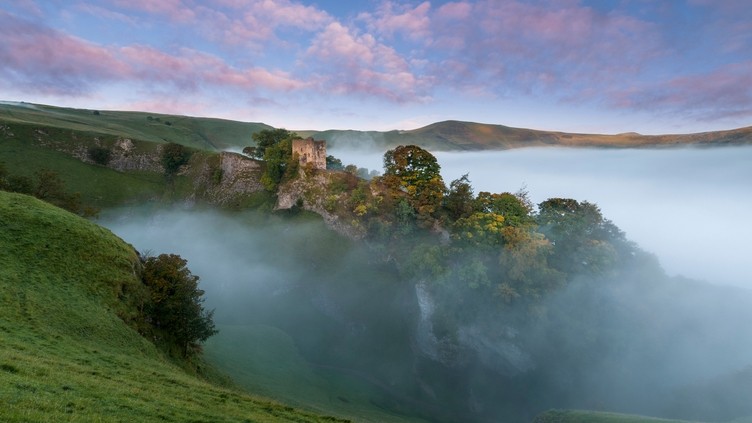
What we do
While our overall slogan is environmentally sensitive self-catering holidays, we have divided our website according to the needs of different markets.
How we tell
We tell people what to do that is fun, according to their needs. Our website is more effective by quickly directing people to what’s there specifically for them. Families want to know about things to do, so we communicate about footpaths for circular walks, wholesome food, quirky places to visit, contributing to feed the animals, family days out and rainy days out.
The accessible market demands evidence of just how accessible we are. So, we put emphasis on comfort for everyone, including people with limited mobility, hearing loss or partial sight – things such as being able to bring your own guide dogs, the ratings for accessibility, and equipment available. We then give peace of mind with our accessibility awards, before moving on to what all this security allows you to do with your time such as using our off-road wheelchair.
We have done the same for ‘bring your own horse’ and ‘pet-friendly holidays’. After spending time understanding what those visitors enjoy doing, we have made sure we provide the facilities these animals need. We then discovered all the fun things they can do nearby with their favourite four-legged friends.
Our top tip
Instead of showing pictures of empty rooms on your website, tell your customers what they can do while staying with you.
Keep expanding the market
We use social media to keep in touch and attract followers and customers."
Photo by: Getty Images

What we do
We adore baking and experimenting to make delicious, cruelty-free, vegan treats. We only use real, wholesome fair-trade and 100% vegan ingredients.
How we tell
We love to share with people through social media: Facebook, Twitter, Instagram and our blog. Besides posting a photo of our wholemeal, just-baked cakes, we also share photos and comments of when we join local events and show proudly our products. We talk to people face-to-face about how vegan wholefoods taste good, while supporting healthy lifestyles. This makes people who just met us, either live, through events or through following us on social media, get excited and try new recipes.
We also share photos of our press coverage such as when The Norwich Resident magazine wrote an article about us and we showed it on our blog with a comment inviting locals and tourists to come, see and feel the benefits of eating healthy for themselves.
We also post practical videos to show recipes with seasonal ingredients, so people can eat healthier, get creative and bake from home.
Our top tip
Social media can be intimidating at first, but think about it as a dynamic tool that is there for you. Use it to increase your market to attract, share and have fun keeping in touch with followers who might become customers, and customers who might become followers.
Online distribution channels
Getting others to do your selling
Direct selling may seem more profitable if you have a high turnover, but paying a commission for someone else to do your selling can have its advantages.
Online travel agents and search engines such as Google, Expedia and Booking.com are showing more interest in differentiating the unique characteristics of accommodation and have also committed to displaying Global Sustainable Tourism Council recognised, sustainability certifications for tourism accommodation. This will make a real difference in helping customers identify and select sustainable products.
Booking.com has developed Travel Sustainable, a programme that aims to help travellers plan more socially and environmentally-friendly stays by highlighting accommodation businesses which state that they undertake a set of sustainability actions. Each award is shown prominently on the property’s listing. The number of Travel Sustainable properties listed is growing and it will be interesting to see the impact this has on customer ratings or bookings in years to come.
Online bookings now account for 68% of total travel according to data-gathering platform Statista, and much of the rest is business travel handled by specialist corporate-travel agents.
Because the bigger online travel agents can sign-up more hotels and negotiate bigger discounts, the small specialists need to find more customised products. Specialising in more sustainable products is an option. For example, responsibletravel.com, Much Better Adventures and greentraveller.co.uk focus on unique products and experiences. Alternatively, Charitable Travel includes a charity donation in every holiday sold.
Navigation
Previous:
Next:


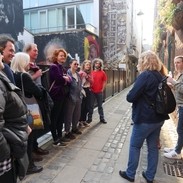
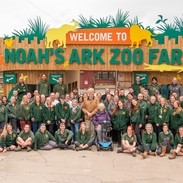
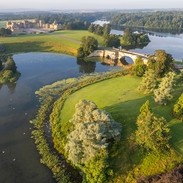



Social media
Get seen by new customers and remembered by old ones
Social media gives you endless possibilities, but you need to know where to spend your time. The choices are eye watering: Facebook, Linkedin Twitter, Pinterest, Instagram… each has a different purpose, and maintaining them all could be a full- time job. So be selective.
Although, most social media sites are free, it can be hard to get your voice heard without spending money on paid advertising. If you have something interesting to say and can present it in a visually appealing way, it will be easier to develop a group of followers.
Social media is the channel. Sustainability is the content. Conservation and community messages provide you with interesting and engaging content to share with customers.
Talk about forthcoming events, rather than something in the past, otherwise you simply tell customers what they missed. You will need to use last year’s photos to announce what’s coming this time around.
Messages must be short and light-hearted. You need positive messages that customers feel compelled to like or share; moralising messages get ignored. Funny messages work best – as well as those your target market identifies with.
Give customers incentives to become your friend on Facebook or upload their own photos about your property: for example, a free coffee, or entering into a prize draw.